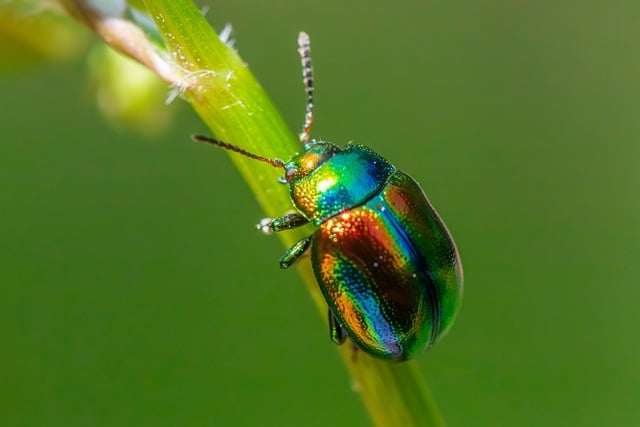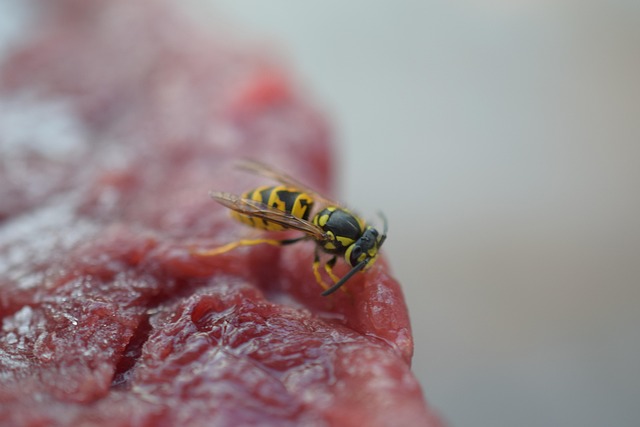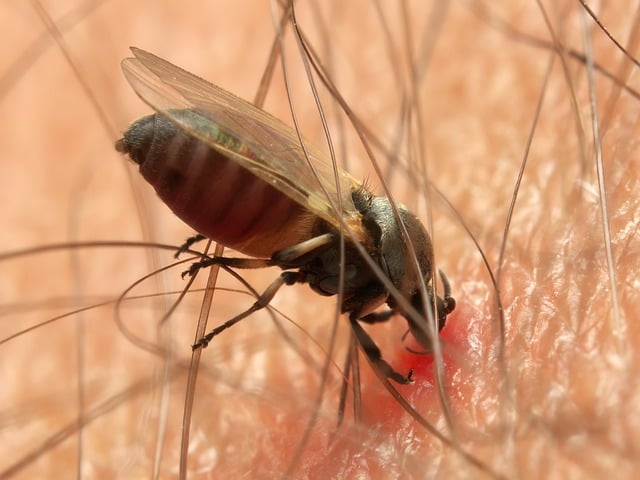In Littleton, organic pest control methods provide an eco-friendly solution to spider infestations. This approach involves removing habitats, using natural repellents like citrus and neem oils, introducing beneficial insects, and landscaping techniques. By combining these strategies—including neem oil, diatomaceous earth, and physical barriers—residents can effectively manage spiders without harming plants or pets, maintaining a peaceful and pest-free home garden.
In the verdant expanse of home gardens in Littleton, spider infestations can disrupt the delicate ecological balance. Understanding these arachnid invaders is the first step towards effective management. This article explores organic pest control strategies tailored for Littleton residents aiming to maintain a harmonious garden environment. From identifying entry points to employing natural repellents and fostering beneficial insect populations, we delve into practical, sustainable solutions for spider management, ensuring your garden thrives without resorting to harsh chemicals.
- Understanding Spider Infestations in Home Gardens
- Organic Pest Control Strategies for Spiders
- Implementing and Maintaining Effective Spider Management Techniques
Understanding Spider Infestations in Home Gardens

Spider infestations can be a common nuisance in home gardens, especially as warmer seasons approach. In the lush green spaces of Littleton, organic pest control methods are gaining popularity as a safe and eco-friendly alternative to traditional chemicals. These tiny arachnids thrive in areas with abundant vegetation, making garden beds, outdoor structures, and even indoor corners potential breeding grounds.
Identifying the extent of the infestation is crucial before implementing any treatment. Organic pest control for home gardens involves a multi-faceted approach. This includes regularly inspecting plants for webbing, egg sacs, or adult spiders, removing spider webs, and using natural repellents like citrus oils or neem oil. By combining these organic methods, residents of Littleton can effectively manage spider populations while maintaining a healthy and balanced ecosystem within their gardens.
Organic Pest Control Strategies for Spiders

In the pursuit of a spider-free haven, especially in home gardens in Littleton, organic pest control strategies offer a safe and eco-friendly alternative to chemical treatments. This approach leverages natural methods to manage arachnid populations, appealing to environmentally conscious homeowners. One effective tactic is introducing beneficial insects like spiders’ predators, such as ladybugs and lacewings. These insects feed on spider eggs and larvae, helping to reduce their overall number in the garden. Additionally, using plant essential oils, like neem or peppermint oil, can deter spiders due to their strong scent without causing harm to plants or pets.
Another organic method is creating an uninviting environment for spiders through proper landscaping. Maintaining a tidy yard by removing clutter and dead foliage reduces hiding spots for spiders. Planting herbs known to repel spiders, like rosemary and lavender, can also act as a natural barrier. Moreover, ensuring good air circulation in the garden through strategic planting can make it less appealing to spiders seeking warm, humid spaces.
Implementing and Maintaining Effective Spider Management Techniques

Implementing effective spider management techniques is essential for maintaining a peaceful and pest-free home garden in Littleton. One of the best approaches is adopting organic pest control methods, which are safe and environmentally friendly. Organic solutions like neem oil, diatomaceous earth, and beneficial insects can effectively deter and eliminate spiders without harming your plants or pets. Regular inspections and prompt action against any spider infestations are crucial; checking dark corners, attics, and crawl spaces for webbing is a good starting point.
Maintaining cleanliness and reducing clutter in your garden is another vital step. Spiders thrive in hidden spots, so keeping the area tidy and removing potential shelters like wood piles or overgrown vegetation can significantly discourage their presence. Additionally, sealing entry points and using physical barriers like mesh screens can prevent spiders from entering your home or garden. Combining these organic pest control for home gardens in Littleton with good gardening practices will result in a more spider-resistant environment.
When it comes to spider control in your Littleton home garden, opting for organic methods is an environmentally friendly and safe alternative. By understanding the nature of spider infestations and implementing these organic strategies, you can effectively manage these arachnid invaders while maintaining a balanced ecosystem. Remember, successful spider management involves consistent efforts, and with the right approach, you can enjoy a peaceful outdoor space free from unwanted guests. So, why not give these natural solutions a try and embrace an eco-conscious pest control regime for your garden?
